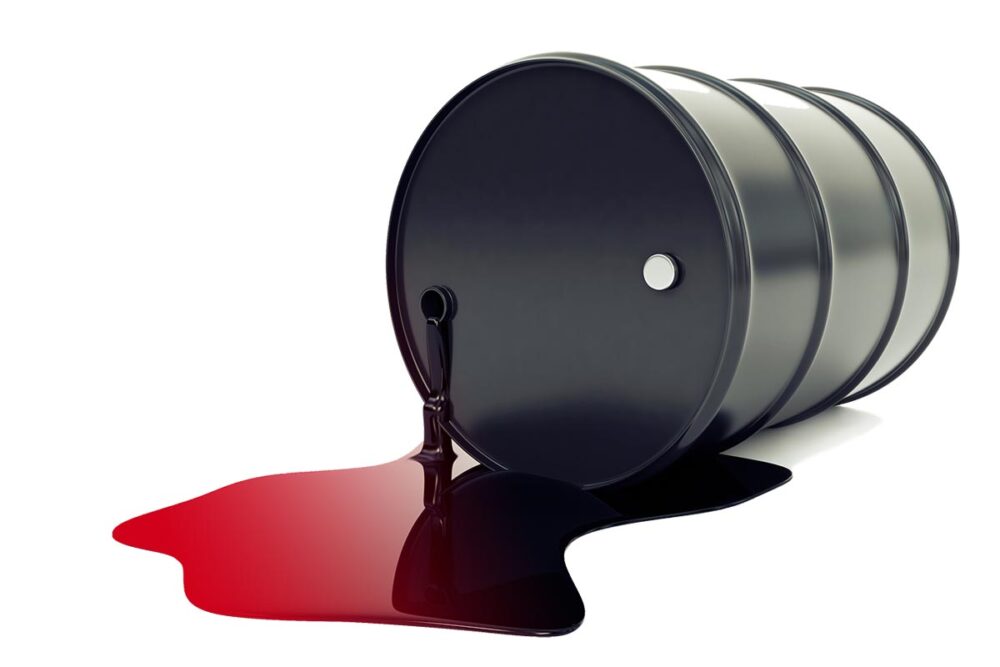A historic trial opens in Stockholm on September 5, both in terms of its scope and the people involved. Alex Schneiter and Ian Lundin, respectively former director and former chairman of the Swedish company Lundin Petroleum, are accused of complicity in war crimes perpetrated between 1999 and 2003 by the Sudanese army and allied militias in an area of what later became South Sudan where the company was exploiting an oil field.
In the late 1990s, Sudan was torn by war between the south of the country - which gained independence in 2011 - and the government of Omar Al-Bashir. It was against this backdrop that, on February 6, 1997, the Swedish company signed -- through a subsidiary -- an oil exploration and production agreement with the Sudanese government. The agreement gave the right to explore for oil and extract oil in a vast area of the south, known as Block 5A, in exchange for the payment of fees and the sharing of future profits with the government. Between 1999 and 2003, following Lundin’s discovery of an oil deposit, the Sudanese army and allied militias carried out large-scale military operations to control this area "and create the necessary conditions for oil extraction", the Swedish prosecutor's office says in a statement published in mid-August. "For four years, until Lundin Oil left in 2003, they led systematic attacks on civilians, or at least indiscriminate attacks, in violation of international humanitarian law," prosecutor Henrik Attorps explained in an interview with Justice Info in 2021. These included bombings, shooting at civilians from helicopter gunships, burning villages and crops. While the number of direct victims of these attacks has never been counted, the "Unpaid Debt" report by the European Coalition on Oil in Sudan (ECOS) estimated in 2010 that around 12,000 people had been killed by the fighting or starved to death by the destruction of crops, and some 160,000 forcibly displaced.
It was this report’s publication that triggered the opening of a preliminary investigation in Sweden. The NGO PAX, which authored the report, highlighted the influence - indeed, involvement - of Lundin's management in these operations. In November 2021, more than a decade after the start of the legal proceedings, the company's former director Alex Schneiter and chairman Ian Lundin were indicted by Swedish judicial authorities for "complicity in war crimes". "These two executives had a decisive influence on the company's activities, and had crucial contacts within the Sudanese government," explains prosecutor Attorps. In order to protect the activities of their subsidiary, the defendants "supported" the government of Omar Al-Bashir in "conducting warfare in a way that entailed the Sudanese army and regime allied militias systematically attacking civilians or at least carrying out systematic attacks in violation of the principles of distinction and proportionality", according to the Swedish prosecutor's office.
Lundin's Defence rejects accusations
These accusations are rejected outright by the defendants and the company - which, after being successively known as Lundin Petroleum, Lundin Oil and Lundin Energy, was renamed Orrön Energy in 2022. In response to the Swedish Public Prosecutor's investigation, the oil company commissioned its own analysis of the accusations against it. Published in 2021, the report led by lawyer Steven Kay - a veteran of international tribunals for the former Yugoslavia, Rwanda and elsewhere - denounced the "unreasonable credence" given by Swedish prosecutors to the "biased allegations" of NGOs and the absence of "objective evidence" and "independent witnesses".
As soon as he was indicted in November 2021, the company's former director, Swiss national Alex Schneiter, challenged the legitimacy of the Swedish justice system to try him. In Sweden, government approval is required prior to any prosecution under universal jurisdiction - i.e. for international crimes involving foreign nationals and committed outside the country. The Swedish Public Prosecutor's Office had already obtained this agreement in 2018. But until then, only foreigners present on Swedish territory had been indicted for such crimes. Alex Schneiter argued that he could not be subject to this universal jurisdiction, as he was neither a Swedish citizen nor a resident of the country. His successive appeals - rejected at first instance, then on appeal - went all the way to the Supreme Court, which ruled in November 2022. "The fact that the accused is not in Sweden is not an obstacle, provided that the links with Sweden are sufficient in other respects," the Supreme Court ruled, thus authorizing the prosecution to go ahead.
High-profile witnesses
It took the Swedish justice system ten months to prepare for this extraordinary trial, which promises to be the longest in the country's history. Hearings will be held three days a week until February 2026 at the Stockholm Court of Justice. The prosecution will need 23 days to present its 80,000-page investigation report, while the defence has set aside 50 days to present its case. Thirty-four victims have joined as civil parties, and 57 witnesses will be heard, including former Swedish Prime Minister Carl Bildt, former German Interior Minister Gerhard Baum, former Director of African Affairs at the US National Security Council John Prendergast, European Representative for the Horn of Africa Annette Weber and Africa Oil Corp CEO Keith Hill.
The trial will be watched with particular interest, as the charges brought against Schneiter and Lundin target the actions of the oil company Lundin Petroleum. The criminal liability of private companies does not exist in Sweden, so the company cannot be charged as a legal entity. "But when an individual or a company makes a profit from a crime, that profit can be confiscated to the extent of any variation in its value," prosecutor Attorps explained to us in 2021. In addition, the company can be fined. Given that "the company's representatives did not implement what could reasonably be expected to prevent these crimes", the prosecution is asking for a fine of SEK 3 million (252,000 euros) and that SEK 1,391,791,000 (117 millions euros) be confiscated from the company's assets, i.e. the current value of profits from the 2003 sale of Lundin Oil's activities in that part of Sudan to Malaysian company Petronas Carigali. This confiscation is not specifically earmarked for reparations, but they could be claimed by civil parties to the trial.
complaint in Norway
"This lawsuit sends a very strong signal to companies and their executives in Sweden and elsewhere," says Olof Björnsson, programme manager at the NGO Swedwatch and author of the "Fuel for Conflict" report on Lundin Petroleum's involvement in Sudan. "This shows that their actions and failure to respect human rights can lead to criminal prosecution."
In parallel and independently of the criminal proceedings in Sweden, Swedwatch and seven other European and Sudanese NGOs filed a complaint in Norway in May 2022 denouncing the takeover of Lundin assets by Norwegian oil company Aker BP. "This is not a criminal procedure, but a complaint filed with the National Contact Point (NCP) [an independent commission responsible for ensuring compliance with the OECD principles of corporate responsibility in each member country]," explains Björnsson. On December 21, 2021 - a few weeks after the publication of the indictment against the former Lundin executives - the Swedish oil company announced that its oil and gas operations had been acquired by Norway's Aker BP for some 12 billion euros, making the latter the country's second-largest oil producer. “These assets, located in Norway, had been acquired by Lundin thanks to profits generated from the 2003 sale of its operations in southern Sudan," explains Björnsson. “And with this sale, nearly 98% of Lundin's capital was absorbed by Aker BP.”
“We Swedes have all benefitted”
In Sweden the remaining capital of Lundin, since renamed Orrön Energy, should be enough to cover the trial costs and any fines, reparations and confiscations by Swedish justice in the event of a conviction. “But the possible reparations that could be obtained in this trial concern only 34 civil parties, out of thousands of people who may have been impacted by the company's actions - actions that generated the profit leading to this sale today," explains Björnsson. “With the takeover by Aker BP, it will be very difficult for all these victims to ever receive compensation. We therefore consider that, by not taking into account the impact of this sale on these victims, despite the widespread media coverage of the facts, Aker BP has failed to comply with the OECD principles on corporate responsibility." The NCP has no real power of sanction, but its opinion - which will be issued in the coming months - may be taken into account by the Norwegian state and lead to the company being monitored by the commission.
Beyond that, Björnsson hopes that these two independent proceedings - the criminal trial in Sweden and the complaint in Norway - will open up the debate on investor liability. "All Swedish banks and four government pension funds invested in Lundin Petroleum at the time of its operations in Sudan, or shortly thereafter. They invested at a time when reports from NGOs and the UN were already denouncing abuses taking place in the area," he explains. “In many ways, we Swedes have all benefited from Lundin's profits in southern Sudan.”








